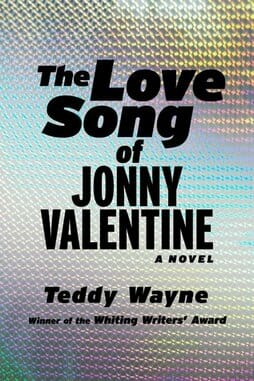The Love Song of Jonny Valentine by Teddy Wayne
The once and future kings of pop

Seth Green seems an unlikely source for an academic discussion of the proliferation of modern tabloid journalism. But considering he began acting at age six and counts Macaulay Culkin as one of his closest friends, he has an unusually solid vantage point.
As a guest on Marc Maron’s podcast WTF With Marc Maron in January, Green had this to say when the conversation turned to how the tabloids hounded Culkin:
“After 2001…the publisher that used to run Globe and Daily Mirror in the U.K. came to the U.S. to re-launch Us Magazine, theretofore the sister publication of People…At that moment it changed to a weekly publication and focused solely on tabloid, and not just tabloid, young tabloid. The Olsen twins, Britney, Paris Hilton…and then within a year there were five magazines. It went from Us Magazine to five magazines, Life & Style, OK, all these other things…The next thing you knew people are addicted to buying five different magazines. And all of a sudden all of these adult women, adult professionals are buying these things en masse and having an opinion about Lindsay Lohan or Britney Spears, where just five years earlier, or two years earlier, professional women over the age of 25 would not have had an opinion about the comings and goings of the cast of Boy Meets World.”
This is how we get “news” stories like 14-year-old Jaden Smith possibly dating not one, but two Jenner sisters. For child actors and musicians—especially those incubated on Disney Channel or Nickelodeon, groomed on sitcoms, packaged as singers, promoted as stars—the media no longer set different standards for covering child stars. Even youngsters must be on at all times, impervious to the temptations of adolescent mistakes, lest they lose their place in the spotlight.
It’s an impossible bargain, and the new digital environment blurs the line between the person and onstage persona. Public interaction can sometimes be genuine, but far more often it is a highly manicured and manufactured relationship.
Not long ago, Billboard announced that YouTube views would be incorporated into the formula for the Hot 100 chart. This, of course, would help online sensations like Psy, fun., Gotye, Macklemore and Carly Rae Jepsen receive chart recognition in an industry shifting away from radio airplay as the major barometer for popularity.
Justin Bieber—discovered via YouTube and plucked into stardom by Usher Raymond and others, a young star with a vast legion of devoted online followers and scores of videos with views in the hundreds of millions—has never scored a number one hit. This may, arguably, be due to now-antiquated methods of calculating the charts. (The precise formula remains a closely guarded Billboard secret.)
Roundly criticized by major music critics and lacking in adult crossover appeal, Bieber resorts to a circle-the-wagons, “Us Against The World” (sorry, Coldplay) mentality with his fans. The Bieber machine directs ire at vague “haters” as positive reinforcement for his fans’ investment. It’s a carefully calculated publicity scheme, but one that obscures the real Justin Bieber, once a kid so in love with music that his talent poured palpably from clips on YouTube.
When not nominated for the Grammys this year, Bieber planned a livestream to run against the awards telecast, an ill-advised, megalomaniac move that satisfied his followers while playing directly into his detractors’ hands. Was the move self-aware to Bieber’s aggressively defensive fanbase? (He even sicced his followers on the Black Keys’ Patrick Carney after the show.) Or did we witness a complete lack of self-awareness from a sore loser struggling to grow up?
All this brings us to Teddy Wayne’s second novel. In the same way the author did with the oil industry and Americanization in his first novel Kapitoil, Wayne constructs his second, The Love Song of Jonny Valentine, around a popular cultural concept—this time, teen music stardom. He keeps things moving at an entertaining clip while dropping points for discussion along the way. The novel touches on over-involved parenting, exploitation of child labor and the sheltered life of child stars, all propelled by Jonny Valentine’s first-person narration.
The titular narrator bears striking similarities to Justin Bieber in terms of genre and trajectory, but this isn’t a simple dramatization. Bieber’s mother, for example, is conservative; she published a memoir detailing the pressure she felt to have an abortion and produced a pro-life film. Jane is the polar opposite of the politicizing, moralistic persona Bieber’s mother projects: a lonely, insecure woman who seeks to desperately control her son’s cash flow to escape unhappiness through wealth. At age 11—younger than when Usher brought Bieber to light as a young teenager—Valentine perches on the precipice of adolescence, beginning to question his mother’s strategies and comprehend her flaws.
-

-

-

-

-

-

-

-

-

-

-

-

-

-

-

-

-

-

-

-

-

-

-

-

-

-

-

-

-

-

-

-

-

-

-

-

-

-

-

-








































